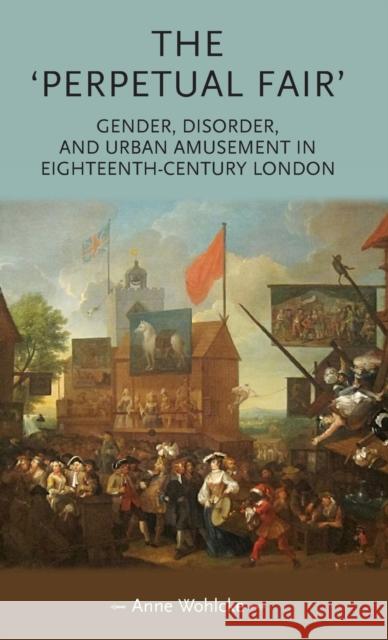The 'perpetual Fair': Gender, Disorder and Urban Amusement in Eighteenth-Century London » książka
The 'perpetual Fair': Gender, Disorder and Urban Amusement in Eighteenth-Century London
ISBN-13: 9780719090912 / Angielski / Twarda / 2014 / 256 str.
The 'perpetual Fair': Gender, Disorder and Urban Amusement in Eighteenth-Century London
ISBN-13: 9780719090912 / Angielski / Twarda / 2014 / 256 str.
(netto: 414,80 VAT: 5%)
Najniższa cena z 30 dni: 432,86
ok. 30 dni roboczych.
Darmowa dostawa!
Each summer, a 'perpetual fair' plagued eighteenth-century London, a city in transition overrun by a burgeoning population. City officials attempted to control disorderly urban amusement according to their own gendered understandings of order and morality. Frequently derided as locations of dangerous femininity disrupting masculine commerce, fairs withstood regulation attempts. They were important in the lives of ordinary Londoners as sites of women's work, sociability, and local and national identity formation. Rarely studied as vital to London's modernisation, urban fairs were a microcosm of London's transforming society, demonstrating how metropolitan changes were popularly contested. This study contributes to our understanding of popular culture and modernisation in Britain during the formative years of its global empire. Drawing on legal records, popular literature, visual representations, and newspapers, this study places official discourse regarding urban amusement into the context of broader cultural understandings of gender and social hierarchies, commerce, public morality, and the urban environment. Entertainments, such as theatre, waxwork displays, and 'monsters' are examined as cultural representations that disseminated ideas about 'Britishness' and empire to a diverse audience. Such entertainment is often overlooked in works focused on elite culture or exhibits in the later era of World's Fairs. This book demonstrates a thriving world of exhibition in the eighteenth century, which is a vital component to understanding later expositions. Fascinating examples drawn from literary and visual culture make this an engaging study for scholars and students of late Stuart and early Georgian Britain, urban and gender history, World's Fairs and cultural studies.











